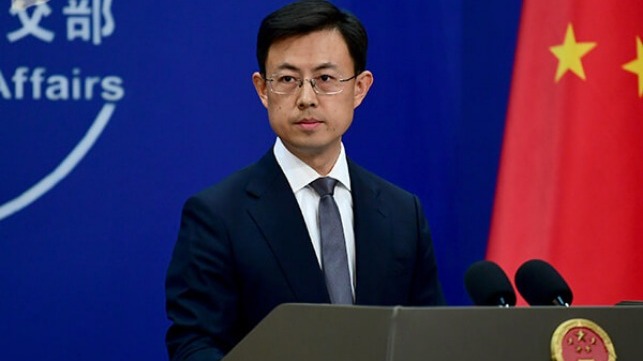Chinese officials ranging from the ministries of commerce and foreign affairs to the shipbuilding association each condemned the U.S. Trade Representative’s report on the shipbuilding industry. They used some of their harshest language saying the report contains false accusations and is irresponsible while labeling it protectionism.
The responses came to reporters’ questions about the report from U.S. Trade Representative Ambassador Katherine Tai. Released on Thursday in Washington, D.C., the report concluded that Chinese dominance in the maritime industry “is unreasonable and burdens or restricts U.S. commerce.” The report cites the use of subsidies, labor practices, and technology transferred to build China’s dominance through its state-owned companies China State Shipbuilding Corporation and COSCO.
A spokesperson for China’s Ministry of Commerce responded saying, “China is strongly dissatisfied with this and firmly opposes it.” They said the investigation is full of “false accusations” and violates World Trade Organization rules. They accused the Biden administration of perusing the effort “out of political needs and the purpose of suppressing China’s development.”
“From a historical perspective, the decline of the U.S. shipbuilding industry has nothing to do with China. Long before the rise of China’s shipbuilding industry, the U.S. shipbuilding industry’s global market share was negligible. From a realistic perspective, the development of China’s shipbuilding industry is definitely not based on so-called “non-market practices,” but on a complete industrial system, well-trained engineers and industrial workers, and an open business environment,” declared the Ministry of Commerce.
The report came as the China National Shipbuilding Industry Association (CANSI) also released its annual data on global shipbuilding. According to CANSI’s calculations, China’s shipbuilding completion in 2024 accounted for 55.7 percent of the global total, meaning over half of the ships delivered globally were built in China. New orders placed with China’s shipbuilding industry accounted for 74.1 percent of global volume while China’s order backlog accounted for 63.1 percent of the global orderbook as of the end of 2024.
CANSI lashed out at the report saying it drew “wrong conclusions based on a faulty investigation.” They threatened that the U.S. efforts “will seriously disrupt the global shipping logistics system and international trade order.”
The association asserts China’s shipbuilding industry has grown by “adhering to marketization and internationalization.” They said the rapid growth over the past 20 years was achieved by insisting on technological innovation while saying China is contributing to meeting the International Maritime Organization goals.
“This investigation is full of lies and distortions and is an unwarranted accusation and malicious smear on the development of China’s shipbuilding industry. The China Shipbuilding Industry Association expresses its strong dissatisfaction and resolute opposition to this,” CANSI wrote in its official statement.
China’s Foreign Ministry, often a vocal critic of the United States, pointed to the response from the Ministry of Commerce. It too reiterated the investigation “seriously violates WTO rules and is an outright protectionist act. China is strongly dissatisfied with this and firmly opposes it. We have stated our position many times.”
While urging the United States to correct its errors and respect facts, China used the response as a veiled response to the incoming Trump administration by calling for adherence to the principles of market economy and fair competition.
The U.S. Trade Representative’s report concluded that China’s unreasonable approach to the shipbuilding industry is “actionable” under U.S. trade law. Experts believe the conclusions of the report provide the Trump administration with another tool in its declared position to stop China’s threat to the U.S. through among other steps the implementation of a sweeping tariff regime.

